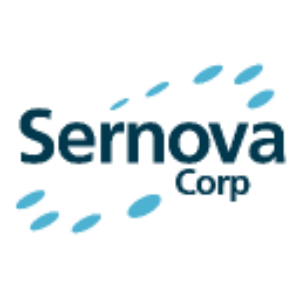Sernova Receives Authorization to Enroll Second Patient Cohort of Phase 1/2 Trial with Cell Pouch System™ for Type 1 Diabetes
Rhea-AI Summary
Sernova Corp. has made significant progress in its Phase 1/2 clinical trial of the Cell Pouch System for type 1 diabetes, receiving approval for a protocol amendment from the University of Chicago IRB. This allows for the testing of a second cohort of patients using an enhanced 10-channel Cell Pouch, which offers 50% greater islet capacity. Interim results from the initial cohort have informed dose optimizations, and rapid enrollment is expected due to engagement with a clinical trial recruitment agency. Further results may lead to a pivotal study design for a future BLA submission to the FDA.
Positive
- Interim results show that three patients from the first cohort achieved insulin independence.
- The protocol amendment enables expedited patient treatment, reducing transplant wait time from 180 to 90 days.
- Engagement of a patient recruitment agency is expected to accelerate enrollment for the second cohort.
- The enhanced 10-channel Cell Pouch can accommodate 50% more islets, potentially improving treatment efficacy.
Negative
- None.
News Market Reaction 1 Alert
On the day this news was published, SEOVF gained 6.31%, reflecting a notable positive market reaction.
Data tracked by StockTitan Argus on the day of publication.
- Sernova plans to begin enrollment of second cohort in the coming weeks and implant multiple patients with the enhanced capacity 10-channel Cell Pouch before the end of 2022
- Positive interim results from patients in the first cohort informed the islet dose and density threshold optimizations for the second cohort
- Expedited enrollment is anticipated with Sernova’s engagement of an experienced clinical trial patient recruitment agency and the Company expects to report interim data in 2023
- Results from the combined cohorts will help guide the design of Sernova’s pivotal study, which would support an anticipated BLA submission to the US FDA and accelerate our iPSC stem cells into the clinic
LONDON, Ontario, Nov. 03, 2022 (GLOBE NEWSWIRE) -- Sernova Corp. (TSX:SVA) (OTCQB:SEOVF) (FSE/XETRA:PSH), a clinical-stage company and leader in cell therapeutics, is pleased to announce, in conjunction with the advancement of its ongoing Phase 1/2 clinical trial of the Sernova Cell Pouch System™ for patients with type 1 diabetes (T1D) who suffer from hypoglycemia unawareness (the “T1D Study”), the approval of a protocol amendment by the University of Chicago Institutional Review Board (IRB) and no objections from FDA, allowing the Company to proceed with a strategically optimized protocol reducing the time required for patient treatment while accelerating potential secondary endpoint efficacy achievement with more optimal dosing.
Following promising interim results from the first six patients of Sernova’s active T1D Study, the protocol amendment enables the testing of a small second cohort of up to seven patients, to evaluate the Company’s optimized 10-channel Cell Pouch, which provides
With the protocol amendment, enrollment of the first cohort of patients has concluded and patient enrollment for the new second cohort will begin. The first three patients of the first cohort with completed islet transplants have achieved insulin independence and the remaining three are progressing towards completion of the treatment regimen. Data from these first patients has enabled Sernova to determine dose thresholds and islet concentrations intended to optimize endogenous insulin production in treated patients. Furthermore, safety observations to date support reducing the time between Cell Pouch islet transplants from 180 to 90 days, which substantially reduces the overall treatment period in the amended protocol update. To expedite rapid enrollment of the second cohort, Sernova has engaged a clinical trial patient recruitment partner with extensive experience and success in accelerating T1D clinical trial patient enrollment.
“Sernova is committed to developing a potential ‘functional cure’ with the goal of freeing patients from the life-limiting burdens of T1D and dramatically enhancing their quality of life,” said Dr. Philip Toleikis, President and Chief Executive Officer. “We are pleased with the positive interim results demonstrating that the Cell Pouch System is well tolerated, reduces or eliminates the frequency of severe hypoglycemic events and continues to contribute to durable insulin independence among patients. Based on our now expanded recruitment activities and efforts, we anticipate implanting multiple patients before the end of 2022. The results from these additional patients will directly contribute to our pivotal T1D trial design and help accelerate entry into the clinic with our iPSC stem cell derived islet technology in conjunction with our Evotec partnership that is progressing ahead of our expectations.”
ABOUT PHASE 1/2 STUDY SECOND COHORT
The Phase 1/2 study (NCT03513939) is an open-label single-arm trial to assess the safety, tolerability, and efficacy of Sernova’s Cell Pouch System for clinical transplantation of human donor islets in patients with T1D. Six patients were transplanted in the first cohort utilizing the 8-channel Cell Pouch System and interim data have been previously reported by Dr. Witkowski and his colleagues. With the expansion into the second cohort utilizing the 10-channel Cell Pouch System, patient eligibility criteria remain unchanged and includes those aged 18-65 with T1D who suffer from both hypoglycemic unawareness and severe hypoglycemic episodes, and who are eligible for donor islet transplantation. Eligible trial patients have had at least one episode of severe hypoglycemia in the previous 12 months and an absence of stimulated C-peptide (a marker of insulin production by the body) in response to a mixed meal tolerance test.
Islets are transplanted into the Cell Pouch approximately six weeks after Cell Pouch implantation to allow development of fully vascularized native tissue chambers and achieve a stable immunosuppressant regimen. At 90 days post-islet transplant, safety and efficacy are assessed prior to initiating a second transplant of islets. At 90 days following each patient’s second islet transplant to Cell Pouch, safety and efficacy endpoints are evaluated again. Trial patients who remain dependent on insulin for at least 6 months following the second islet transplant to Cell Pouch may be eligible for a third supplemental islet transplant via the portal vein.
Patients who elect to retain their implants will be followed for up to 3 years after the final islet transplant to Cell Pouch. Multiple transplanted patients from the first cohort have implant durations of more than 3 years and none have elected to have their Cell Pouch implants removed.
The primary objective of the Phase 1/2 study is safety and tolerability. Secondary objectives include the following efficacy endpoints: production of C-peptide, insulin use, HbA1c, and frequency of hypoglycemic events.
ABOUT SERNOVA CORP. AND THE CELL POUCH SYSTEM PLATFORM FOR CELL THERAPY
Sernova Corp. is a clinical-stage biotechnology company that is developing regenerative therapeutic cell technologies for chronic diseases, including insulin-dependent diabetes, thyroid disease, and blood disorders that include hemophilia A. Sernova is currently focused on developing a ‘functional cure’ for insulin-dependent diabetes with its lead asset, the Cell Pouch System, a novel implantable and scalable medical device with immune protected therapeutic cells. On implantation, The Cell Pouch™ forms a natural vascularized tissue environment in the body for long-term survival and function of therapeutic cells that release essential factors that are absent or deficient in the bodies of patients with certain chronic diseases. Sernova’s Cell Pouch System has demonstrated its potential to be a ‘functional cure’ for people with T1D in an ongoing Phase 1/2 clinical study at the University of Chicago. Sernova is also advancing a proprietary technology in collaboration with the University of Miami to shield therapeutic cells from immune system attack with the goal to eliminate the need for chronic, systemic immunosuppression. In May 2022, Sernova and Evotec entered into a global strategic partnership to develop an implantable off-the-shelf iPSC-based (induced pluripotent stem cells) islet replacement therapy. This partnership provides Sernova a potentially unlimited supply of insulin-producing cells to treat millions of patients with insulin-dependent diabetes (type 1 and type 2). Sernova continues to progress two additional development programs that utilize its Cell Pouch System: An implantable cell therapy for benign thyroid disease resulting from thyroid gland removal; and an ex-vivo lentiviral Factor VIII gene therapy for hemophilia A.
FOR FURTHER INFORMATION, PLEASE CONTACT:
| Corporate: | Investors: | Media: |
| Christopher Barnes VP, Investor Relations Sernova Corp. christopher.barnes@sernova.com Tel: 519-902-7923 www.sernova.com | Corey Davis, Ph.D. LifeSci Advisors, LLC cdavis@lifesciadvisors.com Tel: 212-915-2577 | Elizabeth Miller, M.D. LifeSci Communications emiller@lifescicomms.com Tel: 646-791-9705 |
FORWARD-LOOKING INFORMATION
This release contains statements that, to the extent they are not recitations of historical facts, may constitute “forward-looking statements” that involve various risks, uncertainties, and assumptions, including, without limitation, statements regarding the prospects, plans, and objectives of the company. Wherever possible, but not always, words such as "expects", "plans", "anticipates", "believes", "intends", "estimates", "projects", "potential for" and similar expressions, or that events or conditions "will", "would", "may", "could" or "should" occur are used to identify forward-looking statements. These statements reflect management’s beliefs with respect to future events and are based on information currently available to management on the date such statements were made. Many factors could cause Sernova’s actual results, performances or achievements to not be as anticipated, estimated or intended or to differ materially from those expressed or implied by the forward-looking statements contained in this news release. Such factors could include, but are not limited to, the company’s ability to secure additional financing and licensing arrangements on reasonable terms, or at all; ability to conduct all required preclinical and clinical studies for the company’s Cell Pouch System and/or related technologies, including the timing and results of those trials; ability to obtain all necessary regulatory approvals, or on a timely basis; ability to in-license additional complementary technologies; ability to execute its business strategy and successfully compete in the market; and the inherent risks associated with the development of biotechnology combination products generally. Many of the factors are beyond our control, including those caused by, related to, or impacted by the novel coronavirus pandemic. Investors should consult the company’s quarterly and annual filings available on www.sedar.com for additional information on risks and uncertainties relating to the forward-looking statements. Sernova expressly disclaims any intention or obligation to update or revise any forward-looking statements, whether as a result of new information, future events or otherwise.








